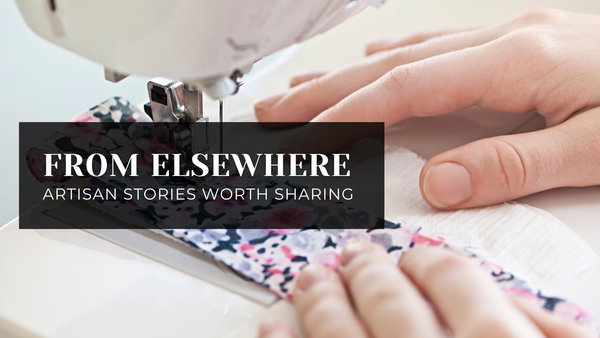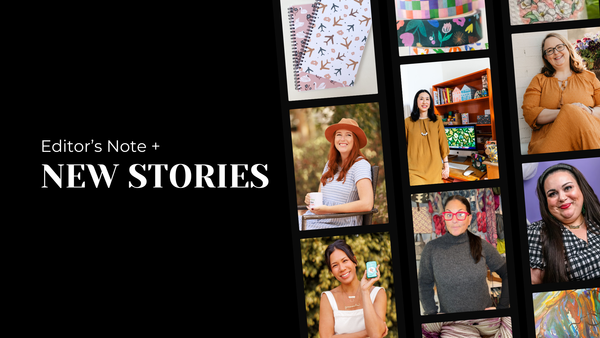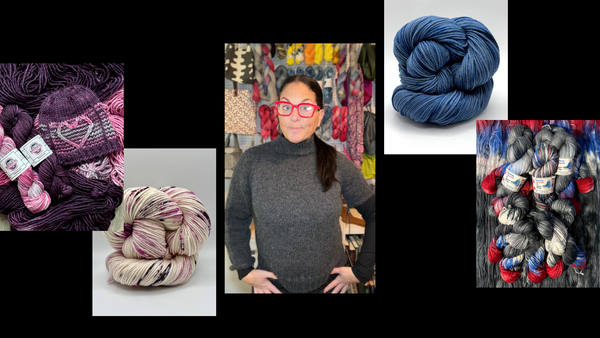How This Artist Began a Paper Flower Business After Making a Donation to Her Library
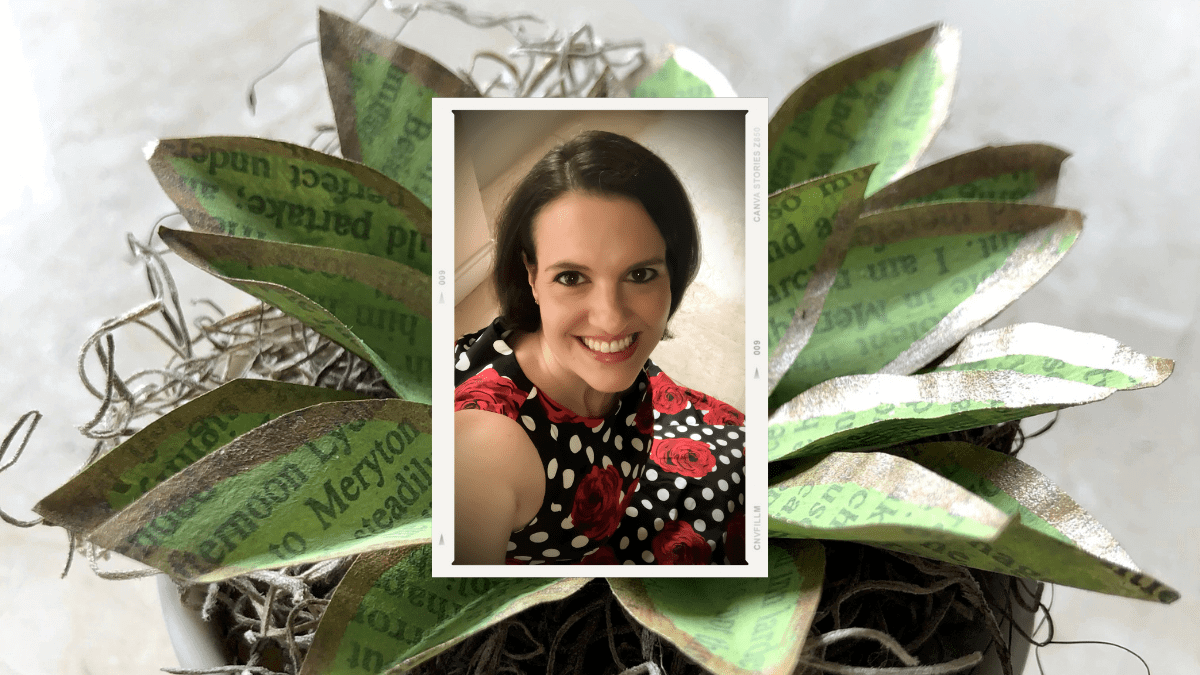
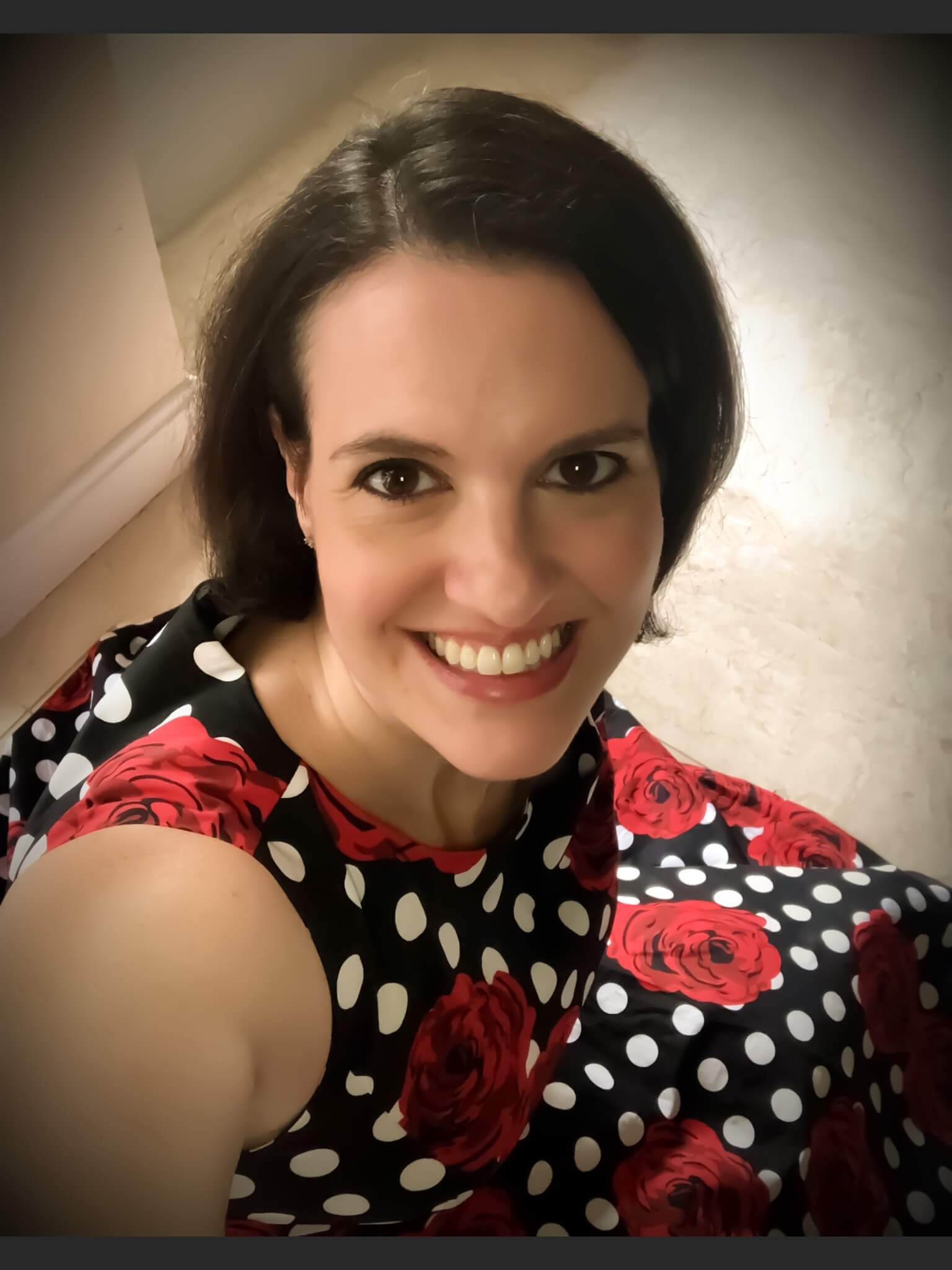
A few years ago, Allegra Murray donated 36 handmade paper flower centerpieces crafted from upcycled book pages to her local library for a Jane Austen-themed event. “They were so well received that I decided to open The Petal Peddlerʼs Shop in 2018 to meet the demand,” she said about starting a paper flower business.
Allegra continues to transform paper into flowers and plants and uses upcycled book pages in her art. Nowadays, she also works with sheet music, maps and children’s artwork and integrates her paper flowers into sculptures, bouquets, arrangements, shadow boxes, centerpieces and more.
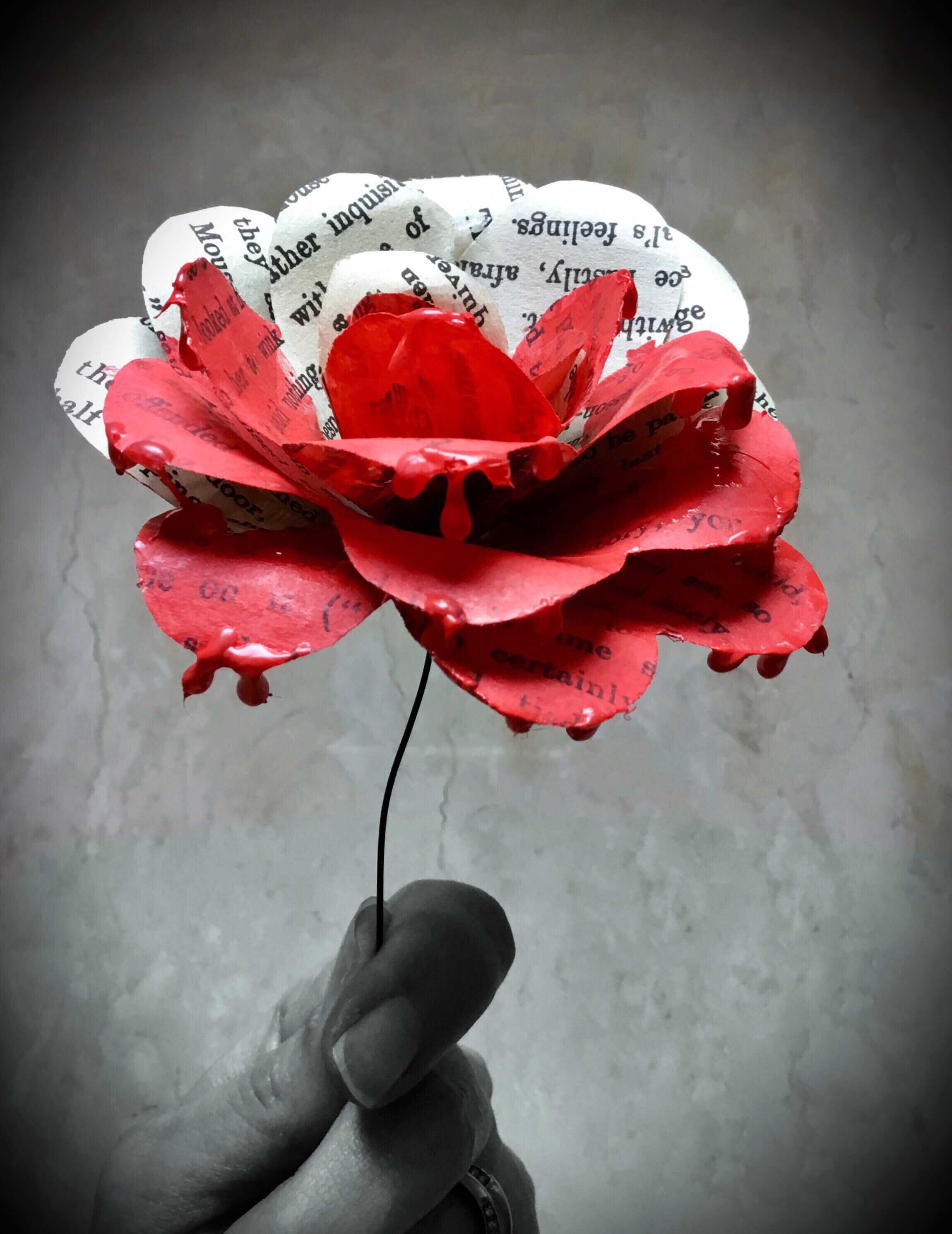
Continue reading to learn more about Allegra and her paper art in our interview below.
Artisan Joy: When did you realize that you could turn sculpting paper into a business?
Allegra Murray: When clients started to send me their treasured papers and asked me to transform them into plants or flowers, I knew I was doing something truly unique and special. So many times, we hold on to different types of papers as a memento of someone or something important to us—the street maps from a road trip, finger paintings from a child, music a parent sang or characters from a meaningful book. Through my artwork, I bring a new life to these papers, allowing the recipient to appreciate them in a new way.
Where do you find inspiration for your creations?
AM: Inspiration is everywhere if you keep an open mind! The papers that I work with often had their own journey before they came to me. I like to incorporate their special story into my artwork whenever possible.
AJ: How do you apply that inspiration to your work?
AM: A wonderful example of finding inspiration in the material was when I incorporated a book with a broken spine into my sculpture, “Hope Blooms 2021.” In this creation, a rose, created from the pages of the same damaged book, appears to have burst through the publication. A symbiotic relationship, the rose would not exist without being given pages from the book, and the book would no longer have use without providing support to the flower.
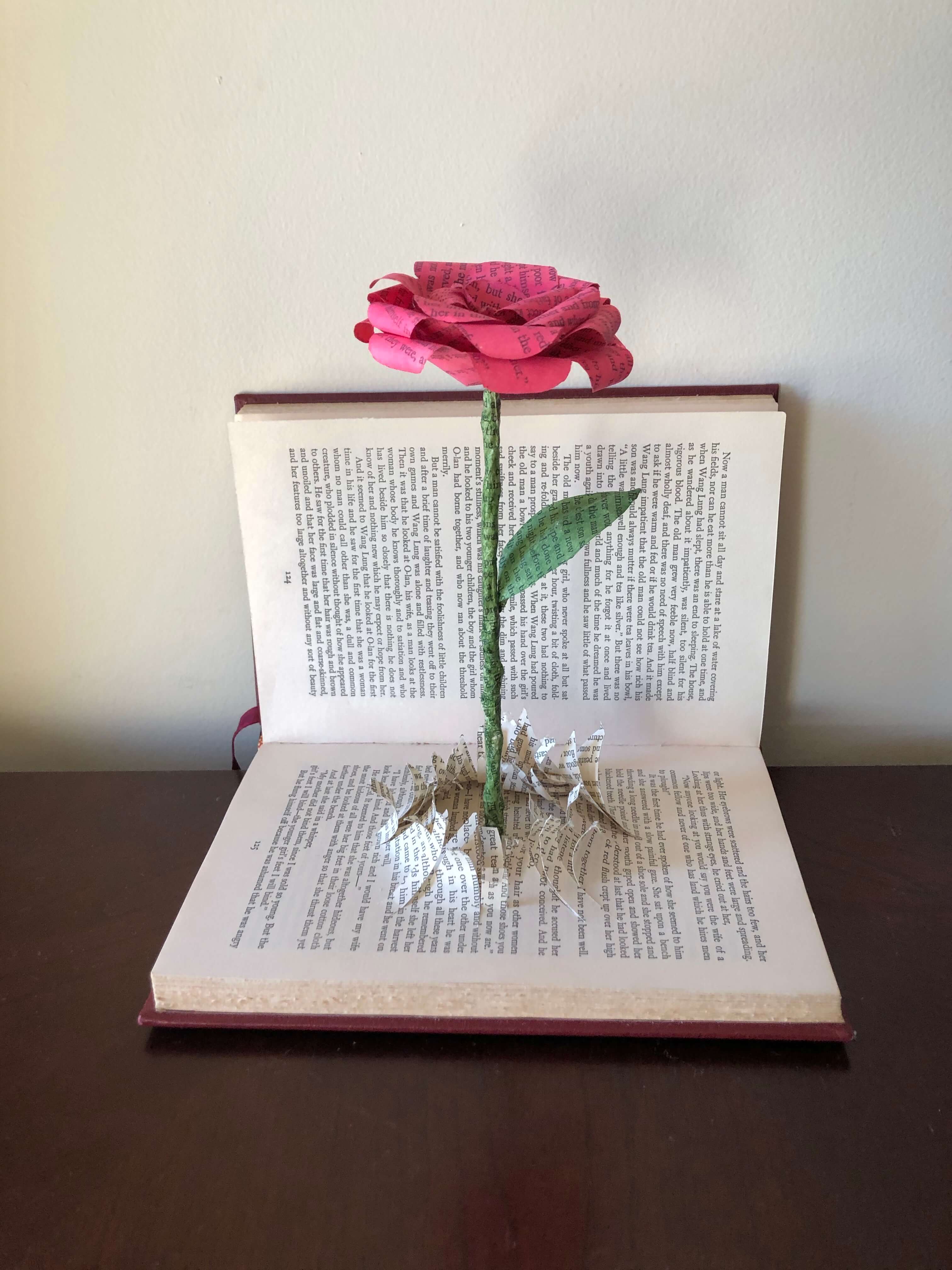
AJ: What’s something our audience would be surprised to learn about you?
AM: I was a classical vocal performance (opera) major for undergrad, so the arts have always been a huge part of my life. Although I don’t sing professionally, I frequently incorporate upcycled sheet music into my creations.
AJ: As creatives, we can be continuously creating and refining our art. How do you handle perfectionism?
AM: I am a huge perfectionist, but sometimes it’s important to take risks and push your boundaries to see the greatness of which you’re capable. The result may not be expected, but you’ll learn something new from the experience. Never stop growing, learning, or trying!
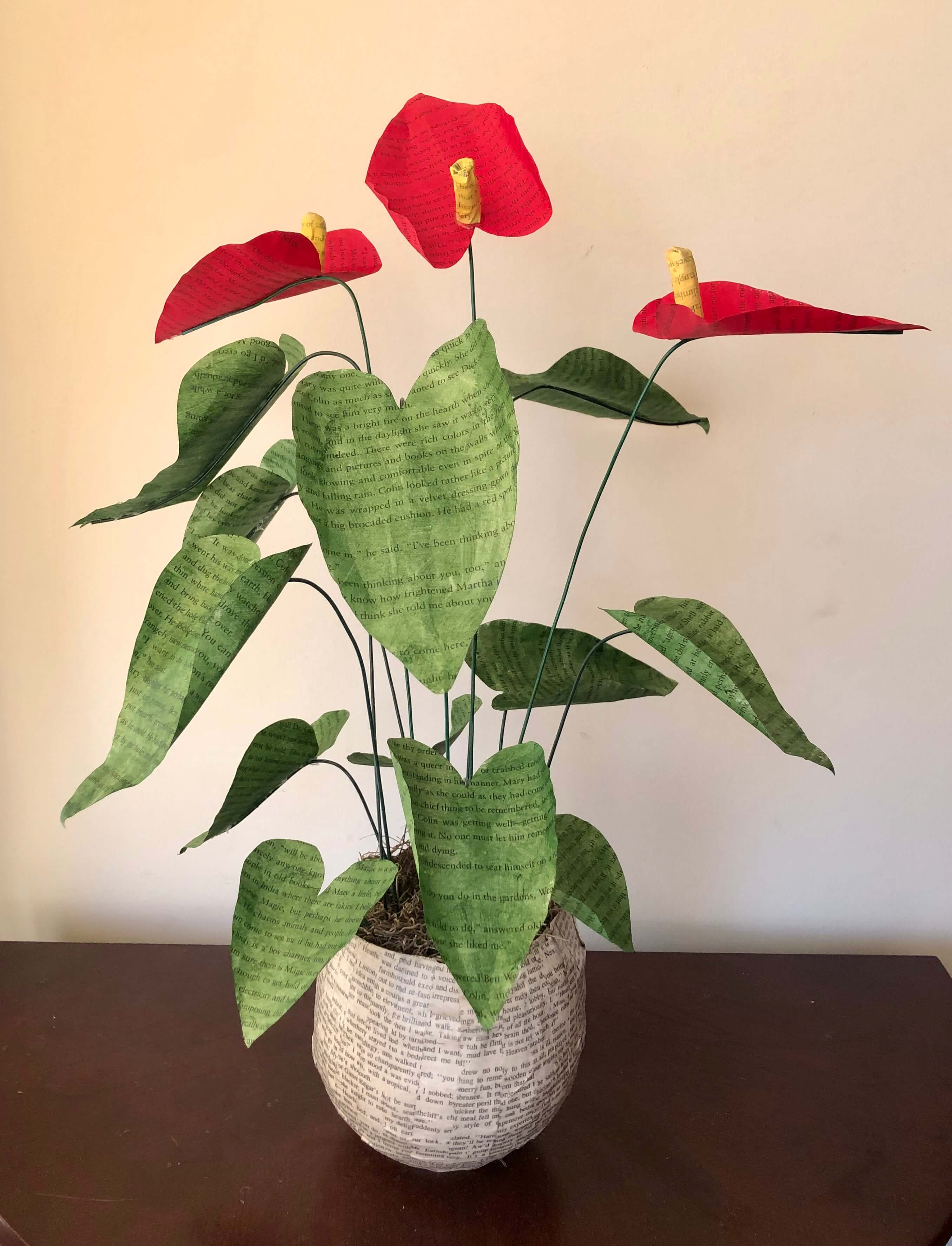
AJ: What advice would you give to someone who is interested in putting their work out into the world but feels vulnerable?
AM: Art allows others to see how you see the world. Your creations are an extension of you and your unique voice. Take a deep breath and let your voice be heard!
AJ: Has someone ever criticized your work? How did you handle it?
AM: I think artwork is supposed to be criticized. Art should encourage a dialogue or a response from the viewer. Not everyone is going to agree with your perspective, and you may not agree with theirs—and that’s okay! Listen to all feedback on your art, both the positive and the negative, and decide how it will help you grow!
AJ: Creatives are often very in tune with what’s happening in the world. Sometimes it can feel overwhelming. If this happens to you, how do you cope?
AM: Creating new art or working on an ongoing project is a wonderful outlet to react to current events. Artists can choose to turn to their passion as escapism, connect with something familiar, or use their medium to express their reaction. Sometimes words cannot adequately describe how we are feeling—art fills in the blank spaces of expression.
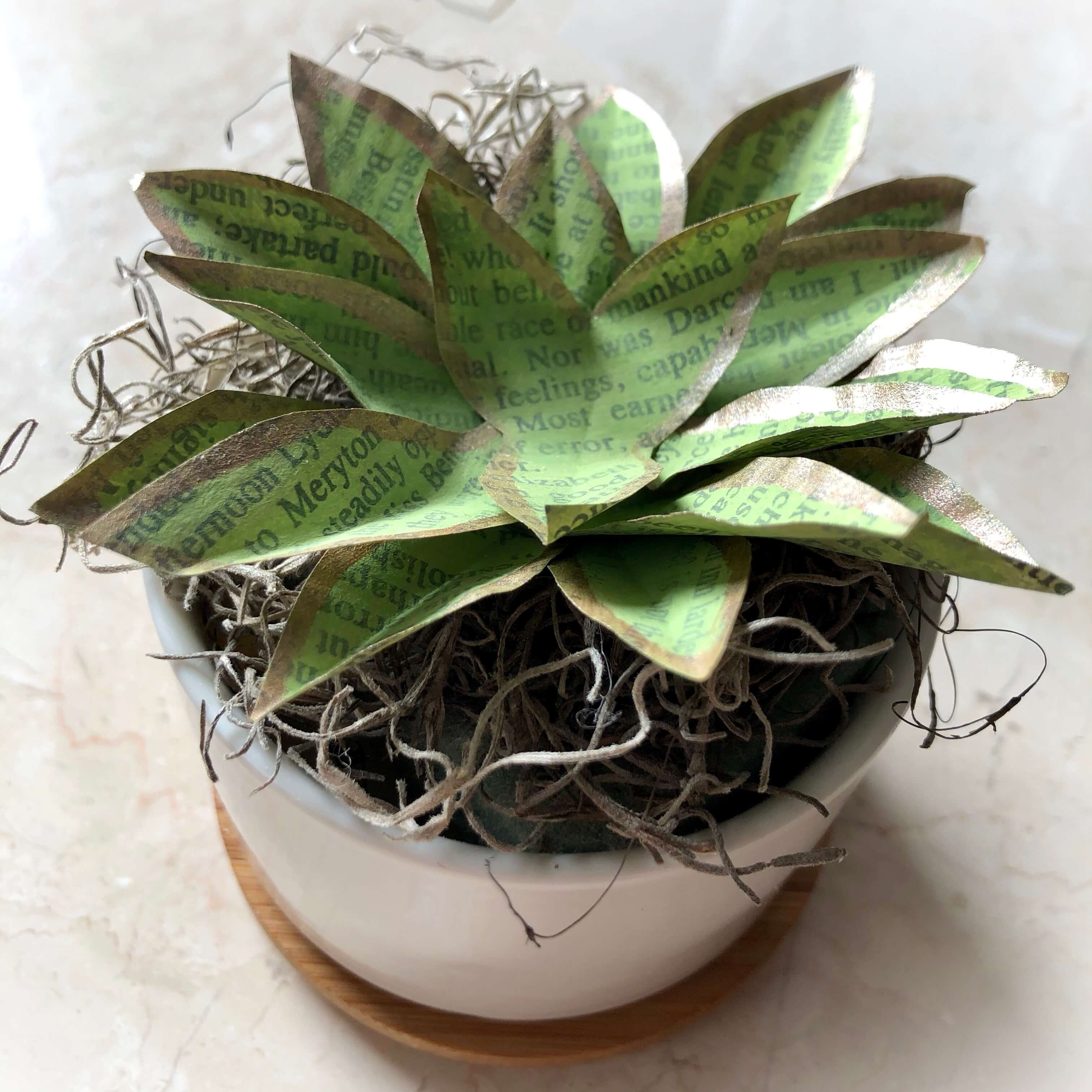
AJ: Are you are passionate about a cause and why?
AM: I am passionate about many causes, but the one I would like to highlight here is supporting early childhood literacy. There are countless websites about the importance of reading to children at an early age and the staggering statistics about illiteracy. Increasing access to books by building a Little Free Library in your town and supporting your local library are a couple of the countless ways to support literacy.
AJ: And, of course, we have to ask you this: What brings you joy?
AM: Spending time with my family, creating beautiful art, curling up with a good book, traveling, volunteering with a nonprofit, experiencing the arts in its many forms and trying something new.
Thanks, Allegra! Her products are available at thepetalpeddlersshop.com. You can also follow the paper artist on Instagram and Facebook.
This interview has been edited slightly for clarity.

